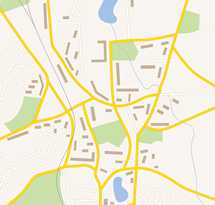Mobile app uses Aruba Beacons, Meridian App Platform to offer users turn-by-turn navication and collaborative content for OU Libraries System
 The University of Oklahoma (OU) has deployed Aruba Networks Aruba Beacons and the Aruba Meridian Mobile App Platform to deliver a new mobile app that helps students, faculty and visitors navigate the OU Libraries, exhibits and other Norman Campus landmarks.
The University of Oklahoma (OU) has deployed Aruba Networks Aruba Beacons and the Aruba Meridian Mobile App Platform to deliver a new mobile app that helps students, faculty and visitors navigate the OU Libraries, exhibits and other Norman Campus landmarks.
The OU NavApp provides turn-by-turn directions and location-based and educational content for more than 1 million visits annually.
Following a successful proof of concept in the library’s Peggy V. Helmerich Collaborative Learning Center, the university decided to expand its deployment to its entire seven-floor, 400,000 square foot OU Libraries system as well as other highly-visited attractions on campus including The National Weather Center, Fred Jones Museum and Sam Noble Natural History Museum.
The OU Libraries is the largest research library in the state of Oklahoma. In addition to providing traditional library services to students and faculty, OU’s Bizzell Memorial Library is the site of a Galileo’s World exhibit that begins August 2015 and runs through 2016. The OU Bizzell Library was chosen to host this exhibit, as it possesses a complete and rare set of first edition Galileo publications from 16th century Italy, some of which even contain Galileo’s own handwriting in the margins.
With its extensive collections including 17,000 linear feet of manuscripts and archives, more than 1 million photographs and more than 1 million maps, as well as its unique collaborative learning center, the OU Libraries is a popular destination for students, faculty and visitors. However, as Matthew Cook, Emerging Technologies Librarian for OU explained, it can be complicated to navigate.
“It’s an intimidating building, especially for first-time users, which include many of our incoming freshmen, and it’s a bit obscure. The resources and services are not immediately apparent when you walk in the front door,” Cook said. “With the beacons and mobile app, we can now leverage the technology that’s already in our freshmen’s pockets – their mobile devices – to combine the offline and online experience and guide them between resources. Essentially, these solutions let us tap into and better serve the needs of this growing #GenMobile generation of user.”
OU deployed Aruba Beacons and used the Meridian Mobile App Platform to design their interactive, feature-rich NavApp, which is available for both Android and iOS. Cook explained that when users who have downloaded the app enter the OU Libraries system, their experience is truly transformed. The app is organized by type of user – student, faculty or visitor – so that users can quickly and easily find the information and resources most relevant to them.
The app provides a map and turn-by-turn navigation for every publicly accessible area along with all of the physical resources, so users can easily find their way through the buildings and locate resources, gallery exhibits, restrooms and elevators. Cook noted that OU relies on the accessibility features built into the Meridian Mobile App Platform so they can provide users with disabilities the easiest route to elevators, for example, or during a storm, guide students using the library to the safest location. Said Cook, “Beyond the obvious convenience and efficiency the app brings our users, there’s a safety and security element as well.”
“We have the content in place and the navigation is working beautifully,” said Cook. “Now we need to monitor the number of users downloading the app to determine how successful it is, ultimately, and how much further we can expand the deployment.”
Click here for a video of the OU Libraries NavApp in action: https://www.youtube.com/watch?v=tTpuYP1of1I.
Material from a press release was used in this report.
- Report forecasts a ‘surge’ in GenAI adoption - April 26, 2024
- Where are microcredentials today–and where are they going? - April 22, 2024
- First-generation students are more likely to seriously consider leaving college - April 17, 2024

